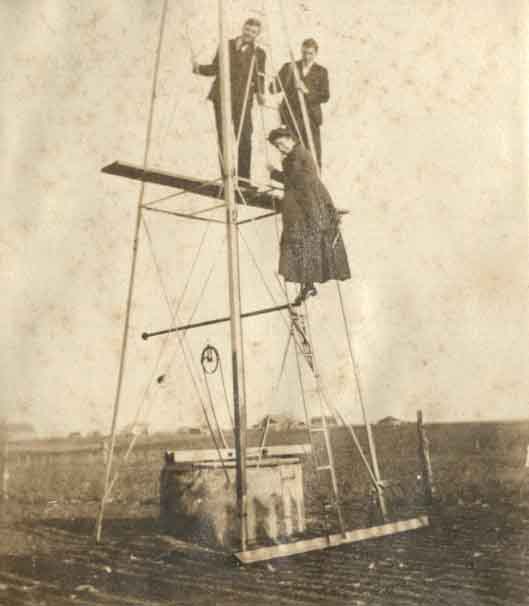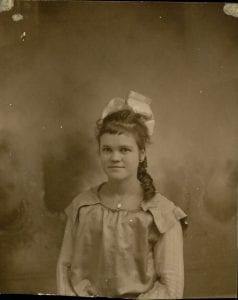March’s finding aids
By Paul Fisher, Assistant Director and Processing Archivist
- Michael Kaelin papers (#4043): Contains photographs of Behren’s Drug Store following the 1953 Waco tornado.
- Peerless Wire & Fence Company (#4009): Publicity materials for the company based out of San Angelo, Texas, including letters and pamphlets.
- Harry L. Woodyard papers (#394):Includes materials related to the activities of the 131st Field Artillery during World War I.
- Staggs and Company records (#4008): Consists of materials promoting the sale of Staggs and Company’s branding table.
- Midland County Abstract records (#4050): Four title abstracts to tracts of land in Midland County.
- A.C. Bowles papers (#371): Contains a single transcribed letter from Bowles near the end of the American Civil War, describing conditions in camp, possible upcoming troop movements, and rumors of peace
- BU Records: University Research Committee (#BU/302): Includes reports regarding funds distributed by the committee in 1975-1981.
- BU Records: Museum Studies Department (#BU/355): Consists of a variety of materials from the museum studies department at Baylor University; primarily correspondence as well as administrative records.
- BU Records: Emmy Parrish Lectures in American Studies Series (#BU/326): Contains materials relating to speakers at past lectures, including correspondence and programs.
- BU Records: Recreational Sports Department (#BU/344): Includes the 1996-97 Year End Report produced by the department.
- BU Records: Center for Community Research and Development (#BU/269): Consists of copies of community needs assessments for Corpus Christi, Burnet, Llano, and Abilene Baptist Associations.
- BU Records: Aerospace Studies Department (#BU/5): Correspondence, scrapbooks, photographic material, and literary productions produced by the Baylor University Aerospace Studies Department, a University-sponsored military preparation program in partnership with the U.S. Air Force.
- Zadock Woods Family papers (#4014): Contains two manuscripts about the Woods family in Texas, including details about frontier and family life, Texas history, and religion.
- L. L. Sams and Sons Company Records (#2921): Records highlight the works of the church furniture company through project photographs, catalogs, advertisements, and business records.
- L. L. Sams Stained Glass Studio records (#3223): Include project files, renderings, and slides that document the creation and installation of stained glass windows in Texas institutions such as churches, schools, and military installations. Correspondence, sketches, photographs, product samples, oversize drawings, and colored renderings are included.
- Waco Chapter American Institute of Architects records (#240): Provides insight into the organization from its inception in 1962 until 1971. Materials include meeting minutes, membership applications, support documents issued by the national organization, correspondence, and financial documents.
- BU Records: International Programs Office (#BU/341): Contains materials largely related to Baylor’s international partnerships and programs. Materials contain correspondence, pamphlets, research materials, photographs, and administrative materials.
- Military Order of the World Wars (Central Texas Chapter) records (2923): A variety of records on servicemen from Central Texas who gave their lives in conflicts from 1917-1975.
- Ronald W. Matthews papers (#4042): Consists of certificates of baptism, marriage, and confirmation from German-Americans in the late nineteenth century and early twentieth century.
- Howe Family papers (#2648): Transcribed letters from George Plummer Howe back home during his service in the World War I.
- Alexander Gordon Walsh papers (#3694): Contains memoirs and photographs from the World War I.
- George Green papers (#580): Diary and photographs from George Green’s time serving in World War I.
- George C. Burch papers (#356): Includes letters written by Burch during the American Civil War. Burch was a member of the 1st Florida Infantry, captured at the Battle of Missionary Ridge, and imprisoned for the rest of the war at Fort Delaware.




